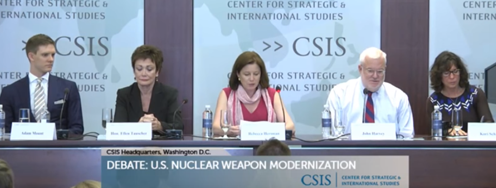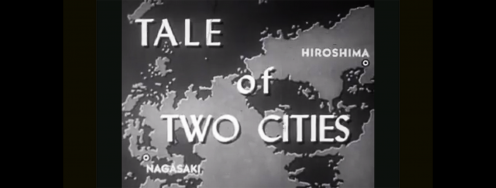Documents Show Japan Repeatedly Rejected Nuclear Weapons
The following is a guest post by Gregory Kulacki, Senior Analyst & China Project Manager at the Union of Concerned Scientists.
A widely circulated AP story recently suggested the current debate over the future of nuclear energy in Japan brought “muted pro-bomb voices” out of the closet. The AP also alarmed readers by stating that, “Historical documents released in the past two years show that the idea of a nuclear-armed Japan was long talked about behind-the-scenes, despite repeated denials by the government.”
The wording of the AP story makes it seem as if all that secret Japanese talking was in favor of developing nuclear weapons, or at least maintaining the option. In fact, the conclusions of these historical discussions, which occurred in the context of Japanese government decisions on the Nuclear Non-Proliferation Treaty (NPT), are exactly the opposite.
In 1995, as Japan was considering its position on the permanent extension of the NPT, it commissioned a study from the Japan Defense Agency (JDA) on the proliferation of weapons of mass destruction. The 1995 JDA report, which was never released to the public, carefully considered the question of whether Japan should develop its own nuclear arsenal, as well as the circumstances that might trigger such a decision. The “worst case” scenario envisioned a complete collapse of the NPT and the break-up of the U.S.—Japan security alliance. The report concludes,
Even in such a case, it is questionable whether there is any value for a trading nation that depends on the stability of the international society to try to secure its survival and protect its interests with its own nuclear weapons. It would more likely undermine the basis of its own survival. Only in a case where destitution reaches a stage where the exchange of damage with an opponent is not a concern any more, would the geopolitical vulnerability of Japan make the nuclear option a possibility.This, however, is a case where a condition becomes its own goal, and is not worthy of consideration.
The unequivocal conclusions of the JDA report reflect a long-standing consensus among Japanese security officials and experts that there is no imaginable scenario in which developing nuclear weapons would be advantageous to the defense of Japan. The 1995 report reiterates and amplifies the conclusions of an earlier report on Japan’s nuclear options—also hidden from the public—commissioned by the Japanese government nearly three decades earlier, in 1968, as it was considering initial ratification of the NPT.
(Both studies were made publicly available by the Union of Concerned Scientists, which obtained copies for its March 2010 study Japan and America’s Nuclear Posture.)
The two reports on Japan’s nuclear options were kept secret not because of their conclusions, but because the Japanese governments that commissioned them were afraid that even the consideration of a nuclear option for Japan would incite massive public protests. Japanese public opinion polls consistently register high levels of support for nuclear disarmament and strong opposition to Japanese development of nuclear weapons.
The AP story fails to convey that the information now coming to light about Japan’s nuclear past reflects a strengthening, not a weakening, of Japan’s anti-nuclear credentials.
The Democratic Party of Japan’s (DPJ) electoral victory in 2009 was, in part, a consequence of its campaign pledge to curtail the influence of unelected bureaucrats who shaped Japanese public policy with little transparency or accountability. The DPJ’s initial efforts to bring greater transparency to Japanese foreign and defense policy exposed a long history of Japanese government complicity with U.S. nuclear weapons policies that violated Japanese laws against bringing U.S. nuclear weapons into Japanese territory.
Recent Japanese comments on nuclear weapons, like those mentioned in the AP story, are a consequence of a concerted effort to make the discussion of Japanese governmental decisions about nuclear weapons more open to public scrutiny than it has been in the past. This is not a cause for alarm, but a welcome development that is highly likely to solidify Japanese opposition to the development of nuclear weapons.



